当前城市:淄博[切换]
- 手机雅思无忧

扫码登录
雅思考试主要是通过对考生听、说、读、写四个方面英语能力的考核,综合测评考生的英语沟通运用能力,实现“沟通为本”的考试理念。对于雅思考生来说,也有很多考试难点和政策盲区需要帮助解答。今天雅思无忧网小编准备了雅思口语 cook 范文 雅思口语范文:描述一个你喜欢的电视节目,希望通过文章来解决雅思考生这方面的疑难问题,敬请关注。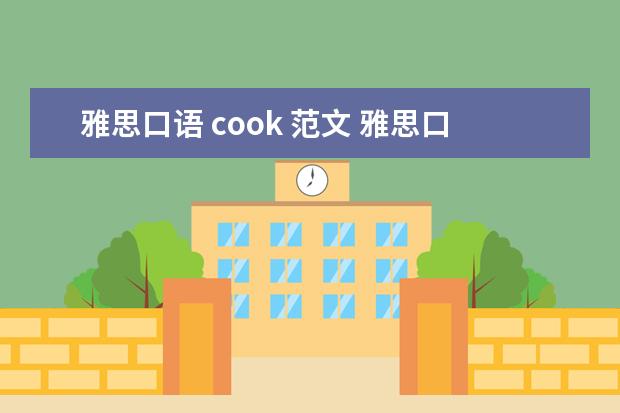
由于汉语更注重意义上的连接,因此经常省略连词,这导致部分同学在用 英语写作 文的时候,也经常在该使用连接词的地方没有使用连接镇如乱词,从而造 成语 法错误或者意义表达不清晰。下面我给大家带来雅思写作高分必备连接词 总结 。
雅思写作中的11种连接词总结
一、And 并列关系
(and)in addition/and/similarly/likewise/as well as/besides/furthermore/also/moreover/too/not only ... but/even/besides this/that
二、Sequence 顺序 (then)
出现的时候表示列举
first/initially/second etc./to begin with/then/next/earlier/later/following this/that/afterwards
三、Consequence 结果 (so)
前面是后面的结果/也御档就是这些词后面就开始给出结论了
as a result/thus/so/therefore/consequently/it follows that/thereby/eventually/in that case/admittedly
四、Contrast 转折 (but )
表对前面论述的转折/一般后面才是作者观点
however/on the other hand/despite/in spite of/though/although/but/on the contrary/otherwise/yet/instead of/rather/whereas/nonetheless/in contrast
1. for one thing, for another, above all things;
2. to begin/start with, next/besides/moreover, last/finally;
3. in the first place, in the second, in the third, (and) best of/worst of all; 4. one of these, another,(there is) still another(reason/factor);
1. 首先橡薯;其次;重要的是;
2. 首先;然后/此外/而且;后;
3. ,首先;第二;第三;好的是/糟糕的是;
4. 其中一个;另一个;还有一个(原因/因素);
五、Certainty 确定 (of course)
强烈的确定/后面是作者的坚定论点
obviously/certainly/plainly/of course/undoubtedly
六、Condition 条件/ 因为 (if )
后面跟随着某种情况发生的前提或者是条件。
if/unless/whether/provided that/Given that /for/so that/whether/depending on
七、Time 时间 (when)
before/since/as/until/meanwhile/at the moment/when/whenever/as soon as/just as
八、Summary 总结 (in a word)
作者的最后总结
in conclusion/in summary/lastly/finally/to sum up/to conclude/to recapitulate 重述/in short/in a word
九、Example 举例 (for example)
for example/for instance/just as/in particular/such as/namely 也就是
十、Reason 原因 (because)
since/as/so/because (of)/due to/owing to/the reason why/in other words/leads to/cause
十一、表对比(comparison)
1. but, but on the contrary, but on the other hand, but then;
2. by contrast, in contrast, in contrast with/to, as a contrast to, as opposed to;
3. by contraries, on the contrary, to the contrary, contrary to (A), opposite to, in opposition to;
4. whereas, while, while on the other hand, while on the whole, yet, however;
5. (as) compared with/to, by comparison, in comparison with, by comparison to
6. First..., Next..., Last...;
7. In the first / early / initial / infant period / stage / phase(或In its infancy)..., In the second / middle / * / ripe period / stage / phase..., In the third / last / closing / later / concluding period...;
8. One step (way/course/approach/secret/trick)..., Another step..., Still another step...;
9. The first measure/step/move..., Next to it comes..., And the last/final/the most important measure...;
10. The direct experience/lesson/factor/way(或One lesson)... The indirect experience/lesson/factor/way(或The other lesson)...
雅思写作连接词之对比转折词语句型介绍:
1. 但是;但相反地;但另一方面;但是接下去;
2. 通过对比;经过对比;经与…对比;作为与…的对比;作为…的对照;
3. 相反;相反;相反;与A相反;与…相反;与…相反;
4. 然而;然而;然而另一方面;然而整体而言;然而;然而;
5. 跟…相比
6. 首先…;其次…;后…;
7. 在个/早期/开始/婴儿时期/阶段;在第二个/中间/成人/成熟时期/阶段;在第三个/后/结束/后面的阶段;
8. 一个 措施 / 方法 /做法/秘密/计策是…;另一个措施是…;还有一个措施是…;
9. 个措施是…;接着是…;后一个/重要的措施是…;
10. 直接 经验 /教训/因素/途径是(一个教训是)…;间接经验/教训/因素/途径是(另一个教训是)… 雅思写作对比转折句型
1. But the obvious (fatal/serious) flaw (defect/drawback) in their argument (attitude/idea/view/action/behavior) is that.../But the basic (main/great/key/ big) problem with their argument (...) is that...
e.g. ...that they are ignorant of (blind to) a bare fact: Social changes have attached new meanings and values to the division between good and bad.
2. But if...it is (not) easy (difficult/hard) to see (find/discover) that ... e.g. But if they adjust their frame of mind a little in the other direction , it is not hard for them to find that life is just as promising as before.
3. Too much emphasis (attention/stress/concern/significance) placed on (given to/focused on/attached to/paid to) the negative (sunny/gloomy/bright) side of the issue, however, may...(如mislead/confuse/cloud/bias/disturb our judgment of it.)A
e.g. ..., however, may mislead us to form a pessimistic estimate of current situations.或..., however, may stop us from rendering (passing/forming/having) a fair (correct/clear/infallible/wise) judgment on it.
4. But in most cases/from the point of view of justice (objectivity)/as a matter of fact/in a very true sense, their (public/general) satisfaction
(dissatisfaction/disillusionment/concern) with...(或their critici* of.../their argument for/against.../their objection to.../their approval for...)can not.../is..., for...
e.g. But in an impartial sense, the public dissatisfaction can not hold every water, for our society is still abundant in goodness and beauty.
5. As a result of..., however, things would/are bound to...
e.g. As a result of such an utter indifference to vicious behavior, however , things would be past saving/mending/all the hope.
雅思写作转折句型介绍:
1. 但他们 辩论 /态度/观点/看法/行为中的明显/致命的/严重的缺点/缺陷是…;他们辩论的基本/大/主要问题在于…
例:…他们忽视了一个*裸的事实:社会变革给善恶的区分赋予了新的意义和价值。?
2. 但如果…很(不)容易/难发现…
例:但如果他们稍微调整一下思路,就不难发现生活还是跟以前一样前途光明。
3. 然而,对问题负面/正面/阴暗面给予/集中/附加了太多的强调/注意/关注会…(如误导/混淆/掩盖/歪曲/干扰我们对它的判断)
例:然而,…会误导我们对目前的形势形成悲观的估计。或:然而,…会阻碍我们对其形成/有一个正确的/清楚的/无误的/明智的判断。
4. 但大多数情况下/从公正(客观)的角度来看/实际上/真正意义上,他们/公众/对…的满意/不满/幻灭/关注(或:他们对…的批评/他们对…辩解(辩驳)/他们对…的反对/他们对…的支持)不能…/是…,因为…
例:但从公正的角度来看,公众的不满并不都有道理,因为我们的社会仍然充满着善与美。
5. 然而,作为…的结果,事情会注定…
例:然而,作为对不良行为全然漠视的结果,事情将成为过去,希望还在。
雅思写作考试时的10种提分连接词
For the sake of…因为……的缘故In terms of…在……方面Likewise, / similarly / by the same token 同理In spite of…虽然,尽管As well as…以及(=and)Regardless of…不管(people are born equal regardless of race and color)As a result 结果In addition (to) 除……之外Like / unlike…像……一样In regards to…就……来咖啡,麦卡龙,咖啡馆,茶杯,茶点,饮料,读书,饮料,小吃,蒙大纳,弯曲的树,通心粉,耶稣典型例句1) These children are often spoilt, not in terms of love and attention because working parents do not have time for this, but in more material ways.2) Others think the true function of a university should be to give access to knowledge for its own sake, regardless of whether the course is useful to employers.3) Today, many elderly people prefer to live in the countryside for the sake of their health. 范文 例句精选
1) For the sake of human beings’ health, we need to balance our diet so that it contains both meat and vegetables. (2021/3/12)为了人类的健康,我们需要平衡饮食结构,既要有肉类也要有蔬菜。2) Yet, rather than a simply personal issue, food is always also a social issue in terms of its production, distribution and consumption. (2021/9/21)然而,食品不仅仅是一个简单的个人问题,它在生产、分配和消费方面也往往是一个社会问题。3) Yet one issue is still in debate: to whom should the money of charity organisations go, exclusively to people who live in the same country as the organisations, or to all people regardless of where they live? (2021/8/20)然而,有一个问题仍在争论中:慈善组织的钱到底该用在谁身上,应该用于与机构同一国家的人呢,还是用于所有人,不管他们生活在哪?4) Unlike many worried parents who prefer to educate their kids at home, I believe school is the best place for kids' education. (2021/4/26)与那些忧心忡忡宁愿在家 教育 孩子的父母不同,我相信学校才是教育孩子的最佳地方。5) In conclusion, teenagers’ ability to tell right from wrong is important to themselves as well as the entire society.(2021/7/28)总之,青少年辨别是非的能力对他们自己和整个社会都很重要。
必备雅思写作连接词分享 起承转合一气呵成
雅思写作连接词之起:
First/firstly/first of all/ to begin with/to start with/ in the first place,
First and foremost;For one thing(… for another);On the one hand(…on the other)
雅思写作连接词之承:
Second/secondly;Third/thirdly;Besides/in addition/ in addition to…;Furthermore/what is more/moreover;Namely/ in other words;In the same way/similarly/likewise;Afterwards/ after that/ after a while;Consequently/as a consequence/as a result
雅思写作连接词之转:
But/yet;However/Nonetheless/Nevertheless;On the contrary/conversely;Though/although/even though/even if;Unlike…. ,A…;Different from… , A….;In fact/ as a matter of fact,
雅思写作连接词之合:
Finally/eventually/in the final *ysis;In conclusion/to conclude;In short/In brief;In summary/ to sum up/in sum;As I have said/as has been noted;Given the fact that…., we can come to the conclusion that…
另附雅思大 作文 考官范文示例
In some countries, many more people are choosing to live alone nowadays than in the past. Do you think this is a positive or negative development?
构思过程:
独居,也就是一个人生活,显然有利有弊,如果选择一边倒观点显然都站不住脚,很难论证,需要分开讨论平均用力。主体段一段写好处,一段写坏处。抽象类话题往往在寻找观点上比较困难或者没有方向,建议大家按照文波雅思教授的方法分类提取观点。本篇考官分别从个人和经济的角度出发,层次分明论证清晰,值得大家学习。
Introduction
1)背景导入,说尤其在发达国家的大城市,最近几年独居变得更为常见。
In recent years it has become far more normal for people to live alone,particularly in large cities in the developed world.
(句型结构:It adj. for *. to do sth. 后置状语补充,注意完成时has become;注意particularly的用法,举特例方便直接,类似especially但语气更强; in the developed world比in developed countries更地道;far more修饰normal代入感强)
2)观点句,我认为这个趋势的影响好坏各半。
In my opinion, this trend could have both positive and negative consequences in equal measure.
(句型结构:简单句 后置状语;虚拟语气could have;consequences高分词;in equal measure高分搭配)
Main Paragraphs 1
1)段首概括,一个人住在个人和宏观经济上都有好处。
The rise in one-person households can be seen as positive for both personal and broader economic reasons.
(句型结构:被动 后置状语并列;主语the rise in one-person households替换more people choose to live alone,地道高分搭配准确;seen as语法得分点;personal & broader economic词汇得分点)
2)分论点1:个人层面上,独居的人可能变得比和家人一起住的人更独立自强(常见观点)
On an individual level, people who choose to live alone may become more independent and self-reliant than those who live with family members.
(句型结构:前置状语 主语who从句 谓语比较级 宾语who从句,高分复合句;self-reliant高分词,展示词汇量)
3)举例论证 线性推理展开:独居年轻人需要 学做饭 ,做家务,付账单,管账等重要的生活技能;这样的人增加了就是种正面的发展
A young * who lives alone, for example, will need to learn to cook, clean, pay bills and manage his or her budget, all of which are valuable life skills; an increase in the number of such individuals can certainly be seen as a positive development.
(句型结构:主语从句 插入语 不定式并列 宾语all of which从句;简单分句 被动;valuable得分词;an increase语法得分点;such individuals指代准确,语法和词汇得分点)
4)分论点2:经济角度上看,独居的趋势会导致住房需求增加(加分观点)
From an economic perspective, the trend towards living alone will result ingreater demand for housing.
(句型结构:前置状语 后置定语 简单句;trend towards living搭配准确,词汇和语法得分点;result in学术搭配,词汇得分点;demand for housing词汇得分点)
5) 举例说明展开:这样会让建筑公司,房产中介和 其它 依赖业主购*产品的公司获益。
This is likely to benefit the construction industry, estate agents and a whole host of other companies that rely on homeowners to buy their products or services.
(句型结构:简单句 宾语并列 宾语that从句;likely to benefit学术搭配,词汇得分点;construction industry & estate agents展示词汇量;rely on homeowners词汇得分点)
Main Paragraph 2
1)段首概括:上述个人和经济的论点可以反向考虑;(简介易懂,挂钩前文暗含对比,CC满分技巧)
However, the personal and economic arguments given above can be considered from the opposite angle.
(句型结构:转折 简单句被动;given above非谓语修饰,语法得分点;be considered from学术搭配,词汇语法得分点;the opposite angle词汇得分点)
2)分论点1:和独立的好处相比,独居的人会感觉孤独、隔离和不安(常见观点)
Firstly, rather than the positive feeling of increased independence, people who live alone may experience feelings of loneliness, isolation and worry.
(句型结构:前置状语 主语从句 宾语并列;rather than无痕迹对比,语法和CC得分点;loneliness & isolation高分词)
3)举例对比 论证展开:他们错过了家人或室友提供的对话和支持,还要承担过重的家庭账单和职责;这样来说,这个趋势就是负面的
They miss out on the emotional support and daily conversation that family or flatmates can provide, and they must bear the weight of all household bills and responsibilities; in this sense, perhaps the trend towards living alone is a negative one.
(句型结构:简单句并列 宾语从句 简单分句;miss out on地道搭配;emotional support, daily conversation & flatmates词汇加分点;bear the weight of高分搭配,词汇得分点;a negative one指代准确避免重复,语法得分点)
4)分论点2:从经济角度来说,住房需求增加会推高房价和租金(加分观点)
Secondly, from the financial point of view, a rise in demand for housing is likely to push up property prices and rents.
(句式结构:前置状语 简单句;the financial point of view替换an economic perspective;likely to push up学术搭配;property prices & rents词汇得分点)
5)对比论证 说明展开:虽然让企业获益,但大众包括独居的人都要面临更高的居住成本
While this may benefit some businesses, the general population, including those who live alone, will be faced with rising living costs.
(句式结构:让步句 插入语补充 被动;be faced with地道搭配;rising living costs词汇得分点)
Conclusion
1)一句话总结:独居增加对个人和经济影响有好有坏
In conclusion, the increase in one-person households will have both beneficial and detrimental effects on individuals and on the economy.
(句式结构:总结 简单句 宾补;detrimental不利的,高分词,beneficial & detrimental替换positive & negative;两个on介词 短语 并列,语法得分点)
雅思大作文评分
TR: 两面观点完整回答问题,分论点详实有深度,首尾段观点总结到位,9分
CC: 全篇结构清晰,整齐,行文连接通顺,易于理解,没有明显模板痕迹,9分
LR: 词汇非常多样,同义替换到位,搭配地道准确,9分
GA: 句型多变,复合句实用灵活,没有语法错误,9分
(13 sentences, 306 words, band 9)
考官经典的雅思大作文4段13句模板,大家可以模仿哦,注意,这里所谓的模板,是指他所熟悉和擅长的一种行文结构,而并非具体的模板句型。
雅思写作高分必备连接词总结相关 文章 :
1. 雅思写作中逻辑连接词汇都有哪些?
2. 雅思作文—高分写作步骤介绍
3. 雅思写作技巧之应该如何巧用各种高分句式
4. 如何提升雅思写作水平之语法篇
5. 揭秘雅思大小作文上7分的技巧!
6. 雅思口语 7分连接词
7. 怎样训练雅思写作?(2)
8. 如何快速提高雅思写作?
9. 雅思写作中必须掌握的16个连词和短语
下面是一篇描写TV program的雅思口语话题范文,这篇雅思口语范文的主要虚洞内容是描述一个你喜欢的电视节目。这是一个抽象类的口语话题,这样的话题要求考生在描述的时候尽可能的使答案显得生动而具体。下面我们来看看具差则枯体内容。
Describe your favorite TV program
My favorite TV program is called Cooking, which is broadcast on Channel Five every Sunday morning. The time it broadcasts is very convenient, coz after watching it, audiences have enough time to imitate the dish they have just learnt from the program, and it’s Sunday, people do not need to go to work.
Once, a course named well-done duck with bean sauce was broadcast. After watched it, I was really interested in it and decided to learn to cook the dish at supper. In order to show off my cooking skills, I tried my best to cook the well-done duck with bean sauce. I cut a bean curd into slices, which seemed as thin as human’s hair. Then I used flour, eggs, sugar and other ingredients to make the bean sauce. After that, I fried a duck in shallow oil with the bean sauce. Finally, the course was achieved.
After my parents tasted it, they both gave praise to my cooking skills. They said, it looked inviting, *elt refreshing and tasted bitter first, sour later, then a litter salty, and a unique spiciness remained at last.
以上就是这篇雅思口语话题范文的全部内容,大家可以看到这篇雅盯灶思口语范文的重点也可以落在经历上,所以在回答和经历有关的话题的时候,大家也可以用这个材料。当然如果想要回答好这类的话题,另一个不可避免的就是要掌握一些关于厨房的词汇。
以上就是雅思无忧网为您准备的访问雅思无忧网(https://www.yasi.cn/),了解更多雅思考试新消息,新动态。
雅思培训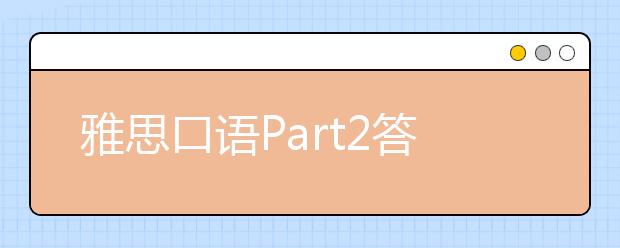 雅思口语Part2答案:a good cook
雅思口语Part2答案:a good cook
Tips for answering this Cue Card topic: You c
2021年09月27日 02:13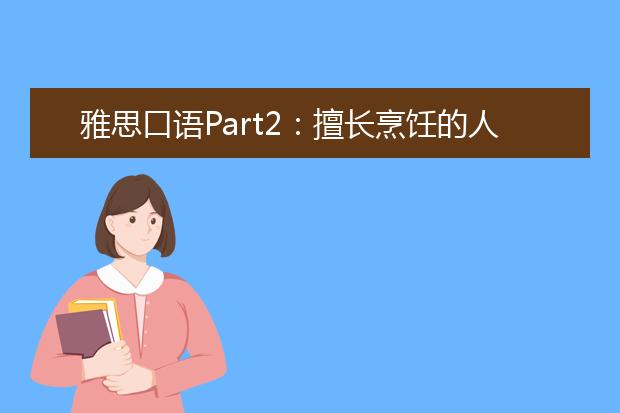 雅思口语Part2:擅长烹饪的人 Describe someone you know who is a good cook
雅思口语Part2:擅长烹饪的人 Describe someone you know who is a good cook
Describe someone you know who is a good cook. You
2021年11月13日 09:02 大家还只会用cook表示烹饪吗?
大家还只会用cook表示烹饪吗?
雅思考试主要是通过对考生听、说、读、写四个方面英语能力的考核,综合测评考生的英语沟通运用能力,实现“
2022年12月19日 11:25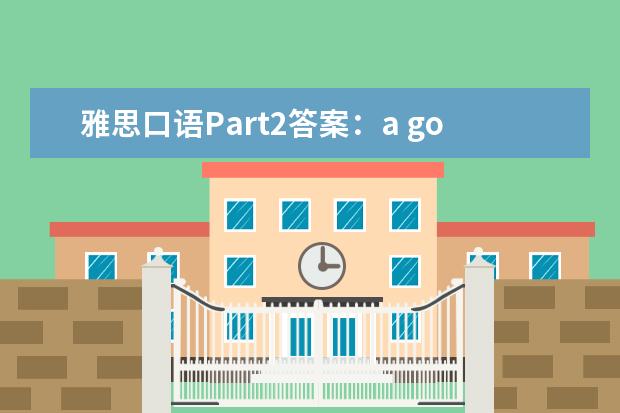 雅思口语Part2答案:a good cook
雅思口语Part2答案:a good cook
雅思考试主要是通过对考生听、说、读、写四个方面英语能力的考核,综合测评考生的英语沟通运用能力,实现“
2022年12月31日 21:27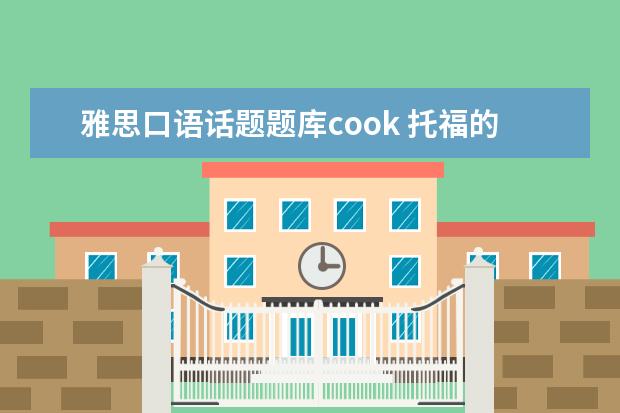 雅思口语话题题库cook 托福的考试成绩如何查询?
雅思口语话题题库cook 托福的考试成绩如何查询?
雅思考试主要是通过对考生听、说、读、写四个方面英语能力的考核,综合测评考生的英语沟通运用能力,实现“
2023年09月11日 12:57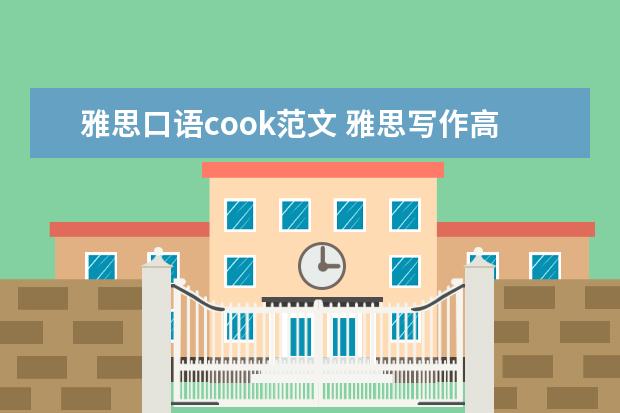 雅思口语cook范文 雅思写作高分必备连接词总结
雅思口语cook范文 雅思写作高分必备连接词总结
雅思考试主要是通过对考生听、说、读、写四个方面英语能力的考核,综合测评考生的英语沟通运用能力,实现“
2023年07月17日 19:51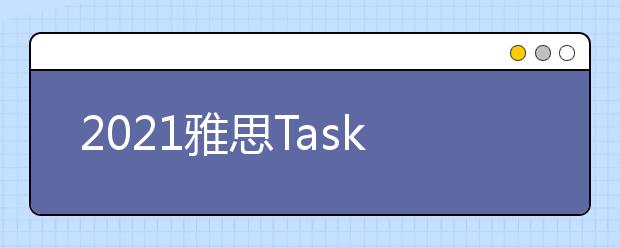 2021雅思Task1小作文柱状图范文:电视节目对孩子的影响
2021雅思Task1小作文柱状图范文:电视节目对孩子的影响
雅思考试主要是通过对考生听、说、读、写四个方面英语能力的考核,综合测评考生的英语沟通运用能力,实现“
2021年07月22日 00:23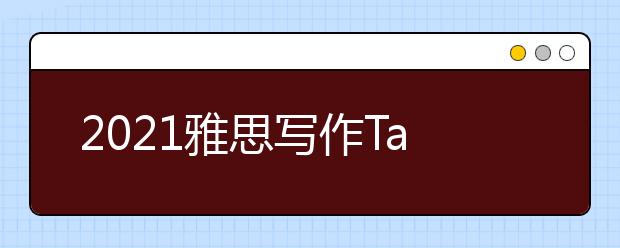 2021雅思写作Task1小作文柱状图范文:电视节目对孩子的影响
2021雅思写作Task1小作文柱状图范文:电视节目对孩子的影响
雅思考试主要是通过对考生听、说、读、写四个方面英语能力的考核,综合测评考生的英语沟通运用能力,实现“
2021年07月22日 13:31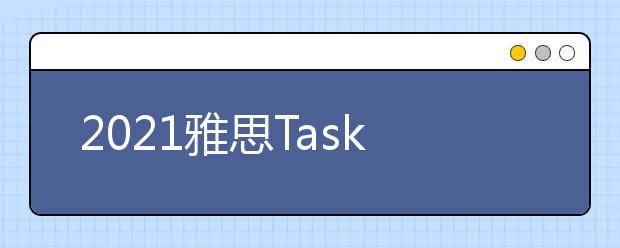 2021雅思Task1小作文柱状图范文:电视节目对孩子的影响
2021雅思Task1小作文柱状图范文:电视节目对孩子的影响
Many people believe that television programs are o
2021年08月06日 13:22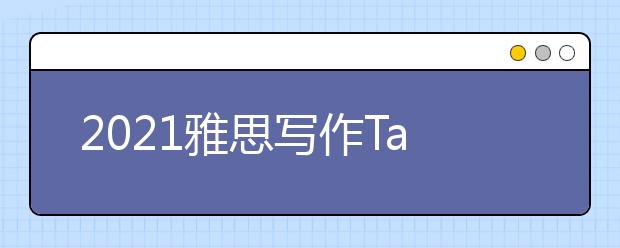 2021雅思写作Task1小作文柱状图范文:电视节目对孩子的影响
2021雅思写作Task1小作文柱状图范文:电视节目对孩子的影响
新东方在线雅思频道整理了《2021雅思写作Task1小作文柱状图范文:电视节目对孩子的影响》,希望对
2021年08月07日 02:34